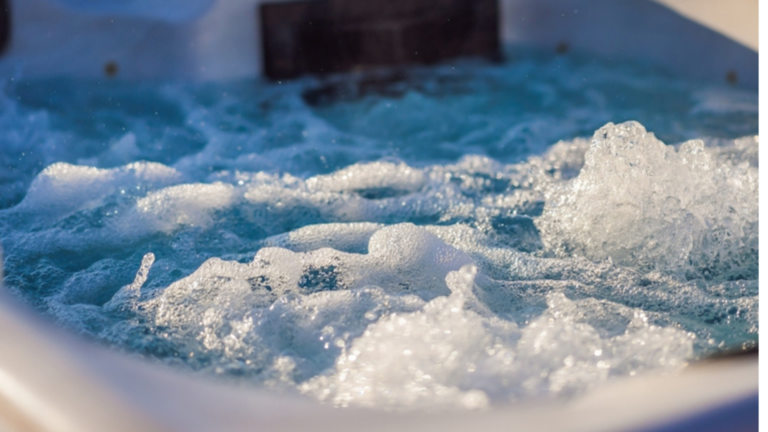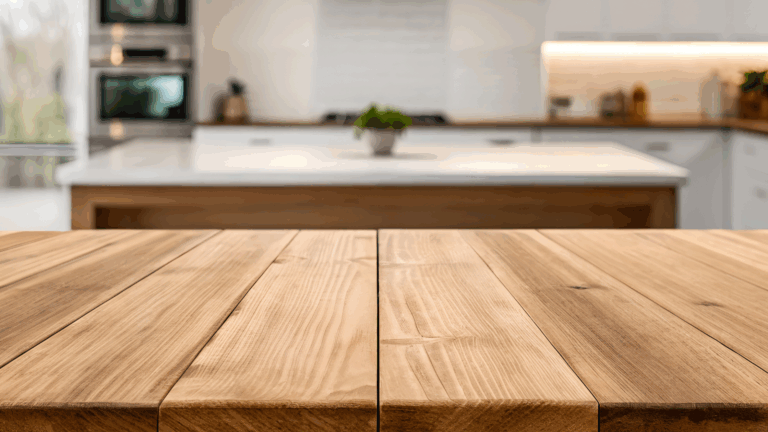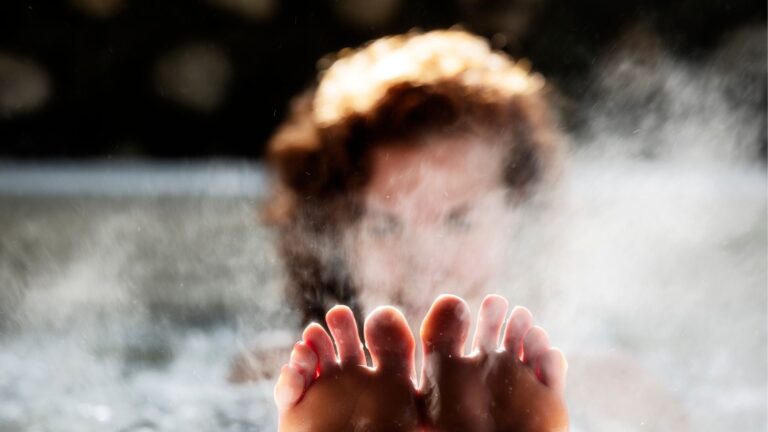Heavy rain can change the chemical balance of your pool water. When a storm hits, you should test your water, then adjust chemicals accordingly. Here’s how:
Quick Summary
- Rainfall can change a pool’s chemistry.
- You should test your pool water after every rainfall.
- Cleaning the pool and adding the right chemicals can bring the pool chemistry back to normal.
- Aqua-Tech offers free water testing and advice. We also have all the chemicals and equipment you need to keep your pool chemistry perfectly balanced.
Why Heavy Rain Affects Your Pool Water
Dilution Of Chemicals
The water in your pool isn’t pure; it’s a combination of water, sanitizers like chlorine, algaecides, pH balancers, and other chemicals. When it rains, the rainwater dilutes these chemicals, changing the overall chemical composition of your pool water.
Contaminants And Debris
Dust, smoke, and other contaminants can enter rainwater as it falls. Once it lands on surfaces like roofs, rainwater can also pick up other contaminants, including asbestos, lead, and copper. A heavy rain can also catch debris and contaminants like fallen leaves and small insects, forcing those contaminants into your pool.
Changes In Water Balance (pH, Alkalinity, Hardness)
Rainwater is acidic and soft. When it rains, the hardness of your pool water can drop; your pool water’s pH may also drop. The pH of pool water is typically supposed to be around 7.4-7.6 (very slightly alkaline); rainwater typically has a pH of around 5.0-5.5 (somewhat acidic).
Immediate Steps To Take After A Rainstorm
Skim And Remove Debris
The runoff from a rainstorm can lead to a build-up of debris in your pool; high winds are also common during some rainstorms, which can drive even more contaminants into your pool water. Start by skimming your pool and removing any debris once the rain stops.
Run The Pump And Circulation System
Your pool’s pump and circulation system pull water from the pool and push it toward your pool equipment to be treated and filtered. Running the pump can remove contaminants that could not be cleaned with your skimmer.
Check Water Level And Drain Excess If Needed
A heavy storm can dramatically increase the water levels in your pool. You can drain water from your pool; the exact method that you will use depends on the configuration of your pool and its equipment. Not sure how to drain pool water? Give us a call; we can help you figure out exactly what you need to do.
Key Water Tests To Perform
Pool test strips are one of the best ways to test water; test strips measure chlorine, hardness, pH, and more, all in a single test. You can also take advantage of Aqua-Tech’s free, no-obligation pool water testing in Winnipeg; simply drop a sample of your pool water off at our office, and we’ll test it for you and recommend treatments.
Chlorine Levels
Rainwater dilutes the chemicals in your pool, so it’s likely you’ll need to add more chlorine after a rainstorm. Adding chlorine will affect the pH of your pool; however—the goal here is to keep everything in proper balance.
pH And Total Alkalinity
pH measures how acidic (or basic) your water is—most pool water should be at a pH between 7.4-7.6. Alkalinity measures how resistant your pool is to changes in pH. Rainwater may reduce the pH of your pool and dilute its alkalinity, so it’s likely you will have to adjust both.
Calcium Hardness
Your pool water should typically have a hardness of around 175-225 ppm. Too high, and you start to get calcium buildup in your equipment. Too soft, and water may start to pull other minerals from your pool’s walls, floors, or equipment, creating etching and erosion. Pool water tends to soften after a rainfall, so you may need to harden your pool’s water.
Cyanuric Acid (Stabilizer)
Cyanuric acid keeps the chlorine in your pool stable, making it more resistant to UV rays. Rainwater dilutes the levels of cyanuric acid in your pool, so it’s important to check that you still have enough in your water.
Phosphates And Metals (Optional But Useful)
Phosphates can discourage the growth of algae; they’re used in all kinds of cleaning products and fertilizers. Runoff from a rainstorm can capture phosphates and move them into your pool. Trace metals like lead can also end up in water runoff; the levels are typically low enough that you don’t need to worry, but if you have the appropriate water testing capabilities, there’s no reason not to measure levels of metal in your water.
How To Restore Balance: Chemical Adjustments Post-Rain
Rebalancing pH And Alkalinity
Now that you’ve tested your pH and alkalinity, it’s time to add chemicals to get everything balanced again. In most circumstances, your water’s pH will be too low, and the alkalinity will be reduced. If that’s the case, using sodium carbonate can boost pH and alkalinity.
Shocking The Pool
Shocking the pool can involve raising the levels of free chlorine to eliminate bacteria, algae, chloramines, and other contaminants effectively. Modern pool care often recommends using a stabilized chlorine shock product, such as sodium dichlor, or a non-chlorine oxidizer like potassium monopersulfate (MPS). These options are safer, more efficient, and less likely to cause damage to pool surfaces or equipment. For chlorine-based shocks, it’s best to apply them after dusk to prevent UV rays from degrading the free chlorine. Always follow the product’s instructions carefully to ensure safe and effective application.
Adjusting Chlorine And Stabilizer Levels
Once you’re done shocking your pool, the chlorine levels will have changed; there may also be a reduction in the presence of stabilizers. Adding chlorine, followed by a stabilizer like cyanuric acid, will help get chlorine to the appropriate level. You should also carefully monitor pH, which you may need to adjust again after shocking your pool.
When To Use Algaecide Or Clarifiers
Clarifiers reduce cloudiness in your pool, while algaecides are a preventive measure to limit algae growth. Both have their places, but you may not need either of these pool chemicals after rainfall. Chlorine does an excellent job of killing algae, and clarifiers can slowly create buildup on your pool equipment. Use either sparingly.
Preventative Maintenance Tips
Regular Testing Schedule
Testing after a storm passes is a great idea, but even when the forecast is bright and sunny, you should test your pool water at least twice a month. Weekly is even better.
Keep Pool Covered When Possible
Keeping your pool covered can help prevent rainfall from entering your pool and debris and other contaminants from getting in via runoff.
Proper Landscaping And Drainage To Reduce Runoff
Your pool is a low point in your yard, so water will naturally want to—well, pool there! Proper landscaping can help prevent this by diverting water away from your pool and towards weeping tiles or other drainage systems.
When To Call In The Pros
If You Notice Cloudy Water Or Algae
As we mentioned, clarifiers can cause buildup on equipment, and algae is best treated through chlorine. When you’re seeing cloudy water or algae, it’s a sign of a more serious problem, and you should call a professional to handle it.
If Your Water Chemistry Is Still Off After Treatment
Pool chemistry is incredibly complex, so don’t stress if you can’t get the pH levels, chlorine levels, alkalinity, and hardness in balance. Call the professionals at Aqua-Tech; we’ll get your pool’s water chemistry back into perfect balance.
Aqua-Tech’s Expert Pool Water Testing Services
We offer a free, complimentary pool water testing service. You drop water off at our location, we test it, then give you a comprehensive treatment plan so you know exactly which chemicals to add, and when to add them.
Get Expert Help Choosing The Right Smart System
We’re proud to offer a wide selection of pool automation equipment and systems; tools that offer enhanced safety, better water quality, and a pool experience that’s customized to your tastes.
Interested in smart pool technology? Visit us at our store in Winnipeg today, or shop online. We’re Aqua-Tech—and we’re here to help you use technology to create the perfect pool experience.



